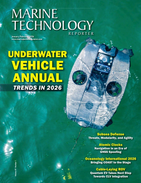Medicines from the Sea
The seas contain an uncounted number of species of plants and animals. These creatures provide a vast storehouse of chemical compounds unknown on land. An ocean commission report lists chemicals and biological materials from marine organisms now in use or development, including 10 anti-cancer drugs, drugs to fight inflammation, fungus, tuberculosis, HIV, malaria and dengue. Recently, Scripps marine chemists isolated a chemical from a rare species of coral that shows promise as a potential drug to fight breast and ovarian cancers. Other Scripps scientists discovered a chemical from a marine sponge that shows potential for treating inflammation and pain without the problems associated with aspirin and other anti-inflammatory drugs. Considered a revolutionary breakthrough, the chemical is now used by more than 20 companies as a tool for understanding the process of inflammation. Several other chemicals from sponges and corals also have been identified and show promise for new treatments for acute asthma, arthritis, and injuries, without the shortcomings of steroids or other anti-inflammatory drugs. Pharmaceutical companies – such as Novartis, Aventis, Eli Lilly, Inflazyme Abbott, Wyeth and Taiho Pharmaceuticals Co. – have marine-derived therapeutic products in the pipeline. Didemnin, the first marine compound subjected to phase II human clinical trials for the treatment of certain cancers, was isolated by the Rinehart Group at the University of Illinois from the tunicate Trididemnum solidum. It proved so toxic that it was rejected as a therapeutic drug source. Nevertheless, its development laid the foundation for large-scale cultivation and extraction of marine organisms, which proved essential for the development of other drugs from the sea. Didemnin has now been replaced by aplidin, manufactured by PharmaMar. Aplidin is obtained from the tunicate Aplidium albicans and is structurally quite similar to didemnin but less toxic. Aplidin, currently in phase II of clinical development, was granted orphan drug status* by the US Food and Drug Administration (FDA) in 2004 for the treatment of multiple myeloma and acute lymphoblastic leukemia. In the future, marine ecosystems could represent an increasingly important source of medical treatments, nutritional supplements, pesticides, cosmetics, and other commercial products. Drugs from the ocean are without question one of the most promising new directions of marine science today.












 February 2026
February 2026



